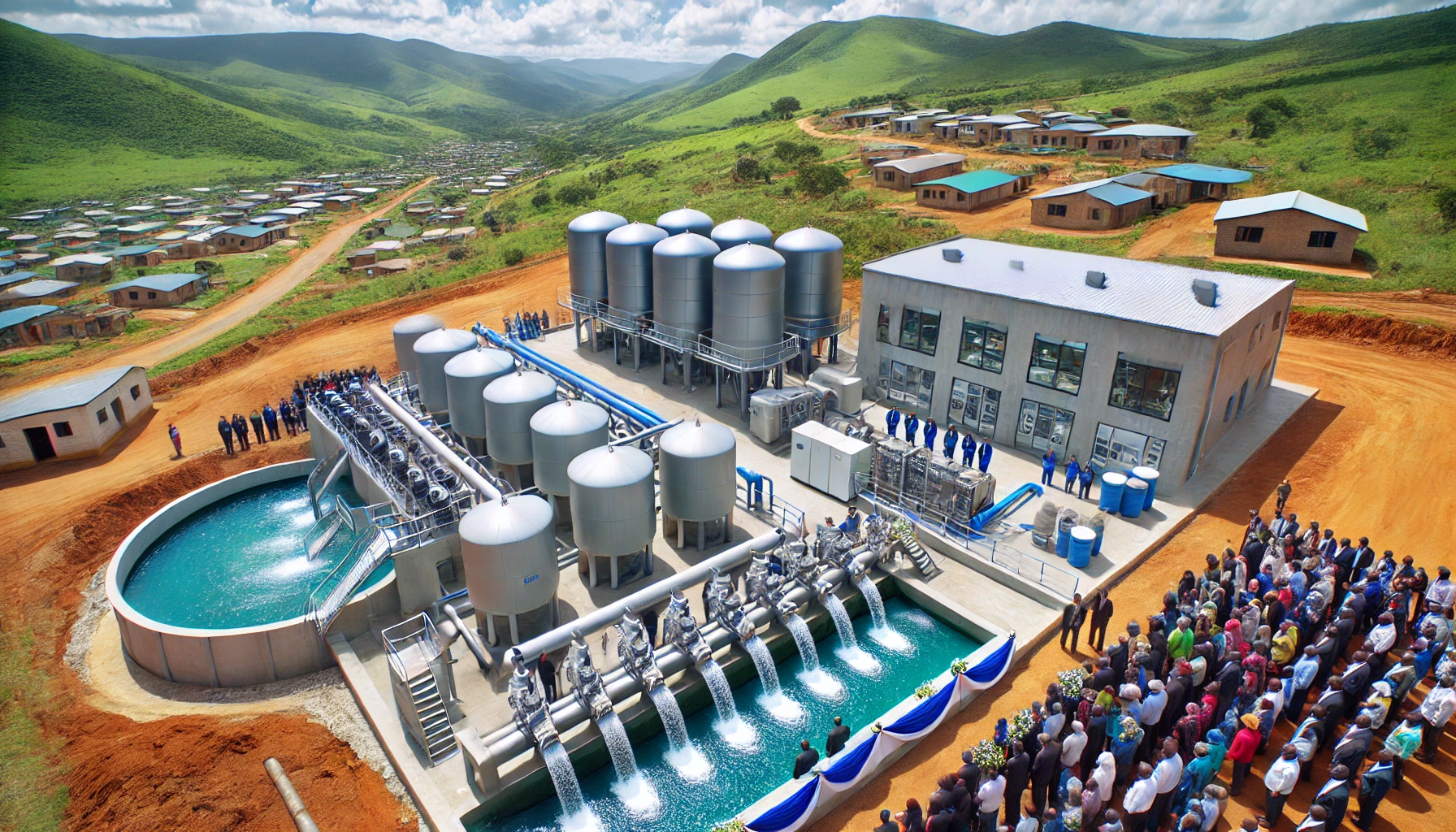Deputy Minister Seitlholo Urges Urgent Action on Limpopo Water Pollution
During the site visits, the Deputy Minister pointed to findings in the 2023 Green Drop Report, which revealed a grim state of water treatment across the province.

- Country:
- South Africa
South Africa’s Deputy Minister of Water and Sanitation, Mr. Sello Seitlholo, has issued a firm call to the Mogalakwena Local Municipality to take immediate corrective measures to tackle the worsening state of wastewater treatment facilities, which are a major contributor to water pollution in the region. The call was made during an oversight visit to key sanitation and water treatment infrastructure in the Waterberg District Municipality, Limpopo Province.
Joined by Mogalakwena Mayor Ngoako Thulani Taueatsoala and Lepelle Northern Water Board Chairperson, Dr. Nndweleni Mphephu, the Deputy Minister inspected several failing and functional water and wastewater facilities, including Mokopane Wastewater Treatment Works, Old Masodi Oxidation Ponds, Sekgakgapeng Oxidation Ponds, Masodi Wastewater Treatment Plant, and Doorndraai Water Treatment Works.
Dysfunctional Wastewater Plants Threaten Public Health and Ecosystems
During the site visits, the Deputy Minister pointed to findings in the 2023 Green Drop Report, which revealed a grim state of water treatment across the province. The report noted that a staggering 78% of Limpopo’s wastewater treatment plants are in critical condition, many completely non-functional. This dysfunction results in untreated or poorly treated sewage being discharged into rivers and dams, posing serious health risks and degrading aquatic ecosystems.
“Raw or partially treated effluent contaminating our rivers and dams not only compromises water quality but also imposes financial strain on municipalities needing to treat the polluted water downstream,” Seitlholo warned.
He stressed that municipalities must develop and implement corrective action plans to tackle both infrastructural and operational failures in sanitation services, and that doing so is crucial for improving public health outcomes and environmental sustainability.
A Rare Success: Masodi Wastewater Treatment Plant
Amid the systemic dysfunction, Masodi Wastewater Treatment Plant stood out as a rare success story. The plant, funded and developed through a public-private partnership with Ivanplats Proprietary Limited Mine, is one of the only facilities in Limpopo that consistently treats effluent to acceptable national standards.
Treating up to 10 megalitres per day, the plant not only improves sanitation access for Mokopane and surrounding communities but also enables industries to reuse grey water, thereby promoting circular water use.
“Masodi sets the benchmark for what can be achieved through collaborative efforts between government and private stakeholders,” said Seitlholo. “It showcases how public-private partnerships (PPPs) can bridge funding gaps and bring technical expertise to address service delivery challenges.”
Emphasis on Public-Private Partnerships in National Strategy
Seitlholo’s comments echoed discussions from the National Water and Sanitation Indaba held earlier this year, which emphasized PPPs as a key mechanism for advancing infrastructure development and improving service delivery across the water and sanitation sectors.
PPPs are particularly vital in financially strained municipalities, where budgetary constraints and capacity limitations hinder timely infrastructure maintenance and expansion. Through such models, private sector actors can inject capital, technical skills, and long-term sustainability planning into essential services.
Innovative Sand Water Extraction Project Offers Hope in Mopani
Following his oversight in Mogalakwena, the Deputy Minister visited Sekhiming and Kuranta villages in the Greater Giyani Local Municipality, Mopani District, to inspect the Sand Water Extraction Project being implemented by Lepelle Northern Water.
This innovative project involves extracting naturally filtered water from the sandbeds of the Molototsi River, a technique suitable for arid and drought-prone regions. The initiative is particularly valuable for areas like Mopani that have been severely impacted by prolonged water shortages and climate-induced droughts in recent years.
“This technology offers a low-cost, sustainable water source and is aligned with our national strategy to employ innovative, nature-based solutions for rural water access,” said Seitlholo.
The Sand Water Extraction Project reflects the Department’s commitment to decentralizing water solutions, allowing even the most remote and under-resourced communities to access clean, reliable water.
Forward Path: Accountability, Innovation, and Local Empowerment
Deputy Minister Seitlholo’s visit served both as a fact-finding mission and a call to action. Municipal leaders were urged to take responsibility for service delivery, prioritize infrastructure repair and upgrade, and adopt new technologies where traditional models have failed.
Key takeaways include:
-
Urgent need for a corrective action plan in municipalities with failing treatment systems.
-
Greater adoption of PPPs, as exemplified by the Masodi facility.
-
Promotion of innovation, especially in rural contexts such as sand water extraction.
-
Community involvement and transparency to ensure accountability in project execution.
As water quality and availability become pressing concerns nationwide, Limpopo’s experiences offer both cautionary tales and pioneering models for the rest of the country.
- READ MORE ON:
- Sello Seitlholo
- Water and Sanitation
- Mogalakwena Municipality
- Wastewater Treatment
- Green Drop Report
- Public-Private Partnerships
- Masodi Plant
- Ivanplats Mine
- Sand Water Extraction
- Molototsi River
- Rural Water Access
- Limpopo Water Crisis
- Mokopane Sanitation
- National Water Indaba
- Water Pollution South Africa










